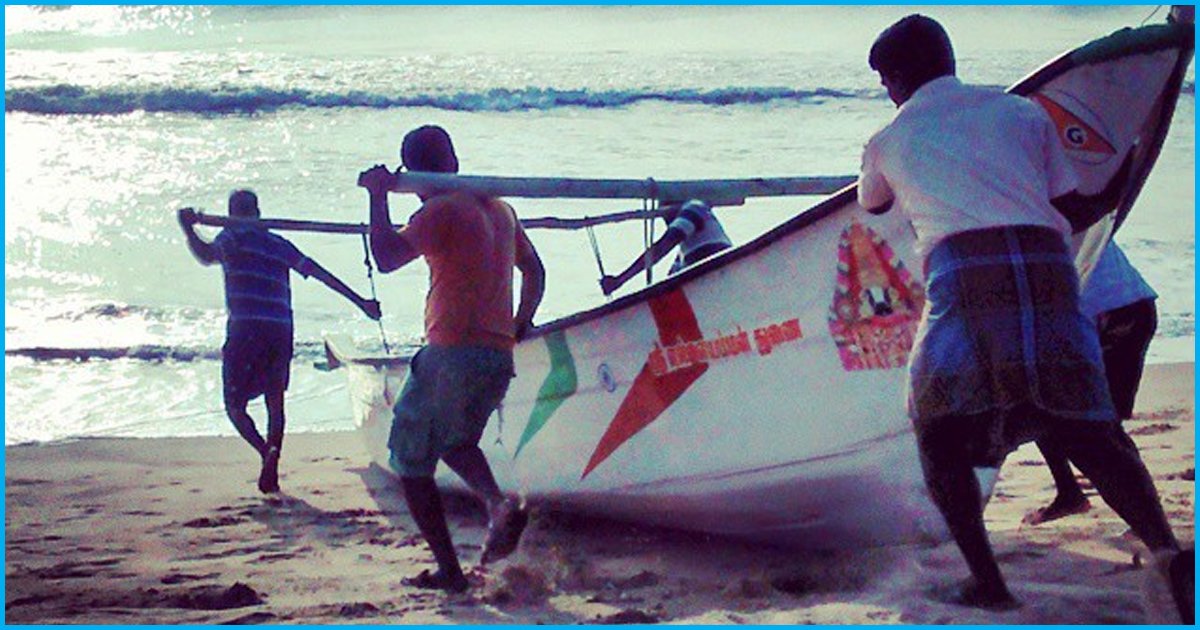
TN: Fisher And Civil Society Groups Come Together To Seek Revision of Coastal Zone Management Plan
23 March 2018 11:38 AM GMT
Tamil Nadu prepared the draft Coastal Zone Management Plan (CZMP), a document that chalks out the plan for management of coastal areas promoting sustainable development while protecting ecologically sensitive area. The CZMP which was to be prepared under the Coastal Regulation Zone (CRZ) Notification, 2011 was presented to the public for comments. The plan was found to be incomplete and not according to the CRZ Notifications.
Pooja Kumar, member of the The Coastal Resource Centre, one of the NGOs which is asking the government to retract the proposed plan and replace it with a complete plan which is line with CRZ Notification, spoke to The Logical Indian.
Coastal Zone Management Plan
Explaining about how the CZMP came into being, Pooja says, “The notification for CRZ was issued by the central government under the Environment Protection Act. It was 1991 in which the notification first came out. It was prepared and approved by the ministry in 1996. In 2011, the new notification replaced the old notification. This was under the directive where new plan would supercede the old plan.The coasts till now were managed under the 1996 plan. Since considerable amount of time had passed and new technological developments had come up since the 1996 plan, a new plan was proposed under the 2011 notification.”
CZMP, 2013 failed to follow guidelines
In 2013, the government of Tamil Nadu had put out the plan for public comment. People realised that plan was incomplete because it didn’t follow the guidelines given under the new notification. The framework was required to strictly follow the CRZ notification, however this plan failed to do so since various important guidelines like clear demarcation of hazard line, marking of livelihood places of the fisherfolks and ecologically sensitive areas were not done. Apart from this, the notification also required that a long-term housing plan for the fisherfolks be put into place, which the new CZMP failed to do.
When many people from the fishermen community and various other institutes protested against it, the National Green Tribunal (NGT) directed the government to present a new plan as per the guidelines. This plan was now held invalid and again the 1996 plan was followed.
However, from 2013 to 2018, no plan has been made. Pooja says, “There were cases with NGT asking for the introduction of the new plan, since there were rampant violations on the coast, with industries coming up near the coast and even the government concentrating on the coast for industrial development. So these, together with the climate changes started putting a lot of pressure on the coasts.”
NGT in 2017 told all the states to come up with new CZMP by July 2018, failing which fine will be imposed.
The new CZMP was hurriedly introduced. The new CZMP, however, was the same as the 2013 plan.
In the new plan as well, the hazard lines were not marked properly. Pointing out the importance of marking hazard lines, Pooja says, ”The hazard line is not marked properly. It should be marked keeping in mind even the future sea rise. IIT Madras found out that by 2050, more than 144 sq km of Chennai city will be submerged under water. At a time when sea rise is a very obvious and in your face scenario, it is important to take important steps, including marking a proper hazard line.”
It was required that the 2013 plan follows the 1996 plan and that any deviation from the old plan should be justified in the written plan. In the 2013 plan, some of the CRZ-1 (ecologically sensitive areas) were converted to CRZ-3 (Areas which are relatively undisturbed).This change was not justified and was simply put up on the map. Pooja says, ”These maps are firstly in English, which is a language alien to the fishermen folks and also maps alone don’t tell much about the plan. Moreover, no justification was rendered regarding this change.”
The new plan seems to be favouring the industries. “ A lot ecologically sensitive areas where the industries are proposed to come up have been deleted from the map. This means that industries can now be built in these areas without any objection. Past incidents like that of Ennore were salt pans were developed for industries proved to be an ecological disaster. It is feared that same may happen if we go ahead with the present plan”
Related Documents can be found here at – The Coastal Resource Centre
Future steps
“Fisherfolks, activists and academics from places like Chennai are writing to Environment department asking that law should be followed while draft is passed, what is being done now is in contempt of court and a new plan should be kept in place which is complete and in line with the rules.”
A “day of action” on March 23 to approach the government in different districts is also being planned.
Some groups have even approached political parties for support.
Pooja signs off by saying, “The government is also pushing major development programs which involves a lot of public money. Before going ahead with these development projects, government should keep in mind how much the coast is vulnerable to sea level rise. We are too arrogant to admit that ecological change is a big issue. Today’s ignorance may prove very costly tomorrow.”
The good news is that you can do your bit to stop this from happening. You can write to [email protected] , asking the Tamil Nadu Pollution Control Board to not to act in the contempt of court and hold public hearings based on incomplete maps.
 All section
All section













